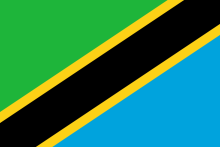Resource information
This Act amends various written laws including the Wildlife Conservation Act (in respect of Disposal of trophies during proceedings), the Sugar Industry Act and the Land Act (in section 19(2), by inserting the phrase “or issued under the Export Processing Zones Act” immediately after the words “the Tanzania Investment Act” appearing in paragraphs (b) and (c). The Sugar Industry Act is more extensively modified by adding new sections on Sugarcane outgrowers organisations, a consultative forum, the Board prescribing indicative prices for sugarcane, sugar or sugar byproducts, the duty of a licensed manufacturer to submit a development and expansion plan, and on the blending of sugar. Section 19 of the Land Act concerns rights to occupy land.
Amends: Wildlife Conservation Act (No. 5 of 2009). (2009-03-12)
Amends: Sugar Industry Act, 2001 (Act No. 26 of 2001). (2002-01-28)
Amends: Land Act, 1999 (No. 4 of 1999). (1999-05-15)



